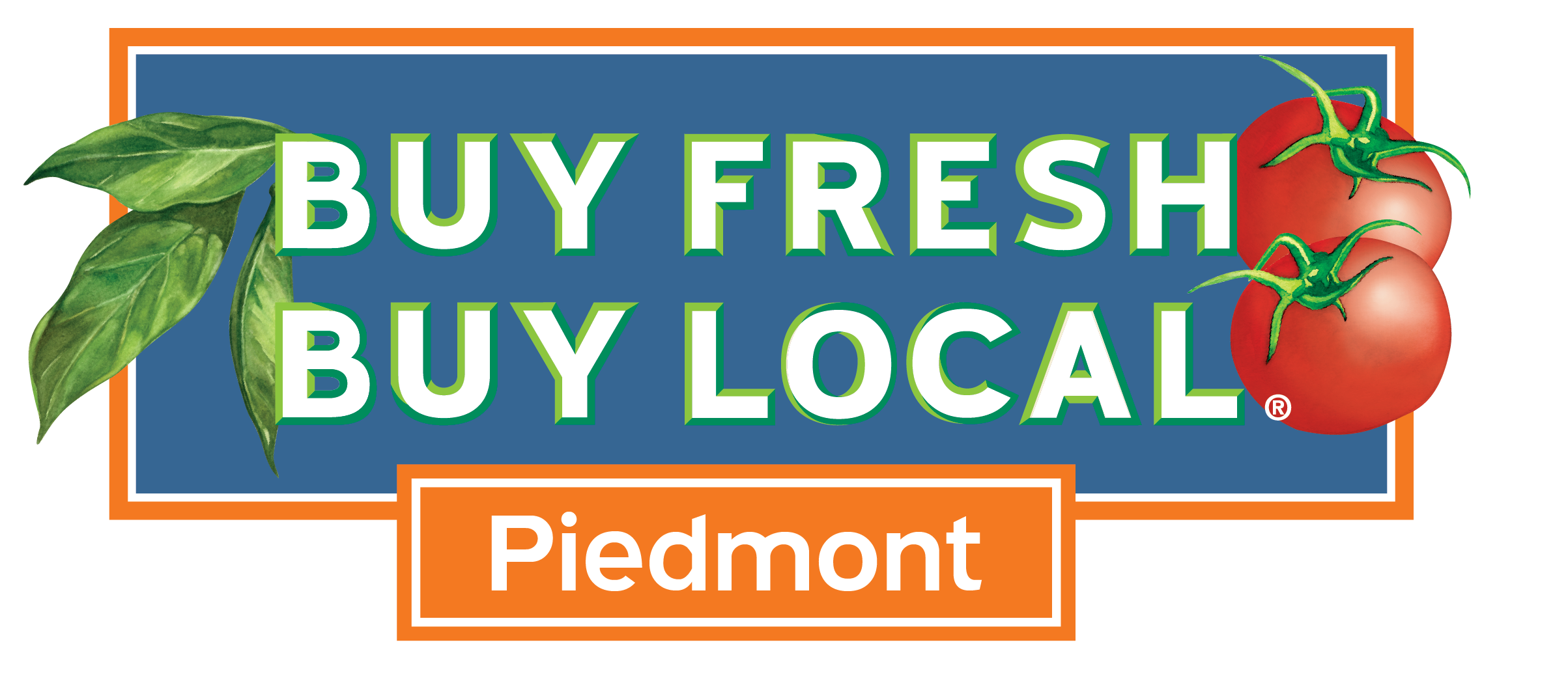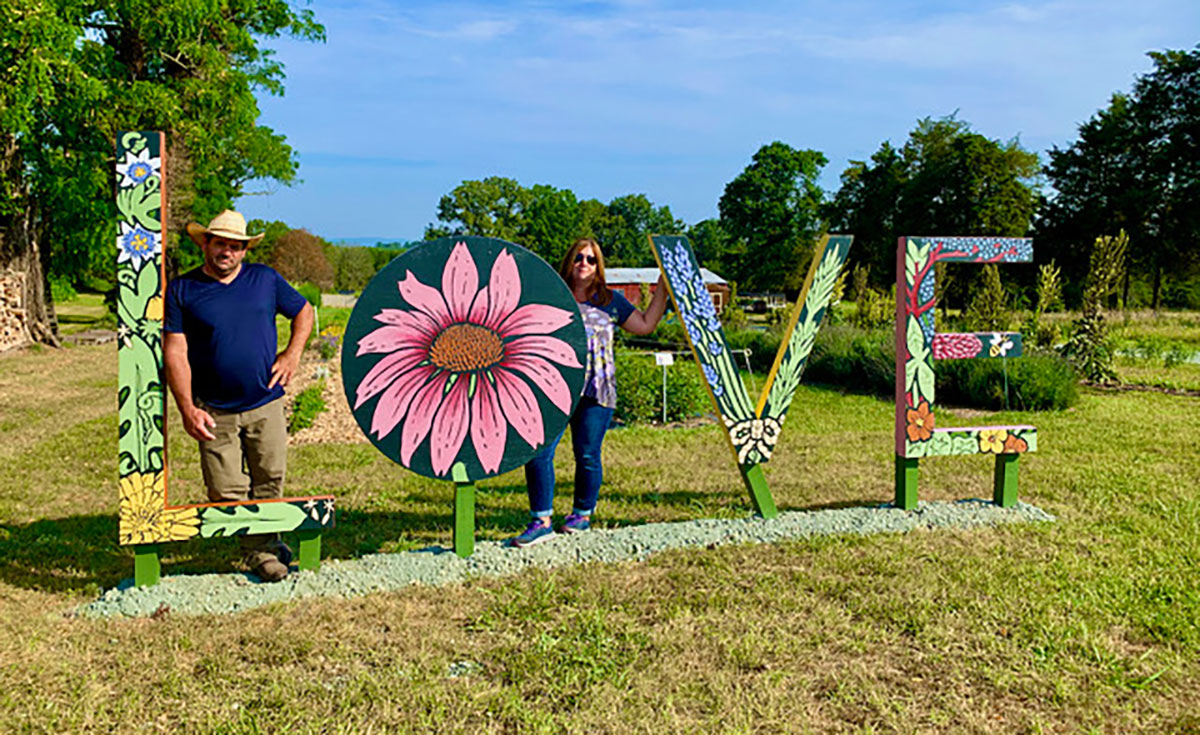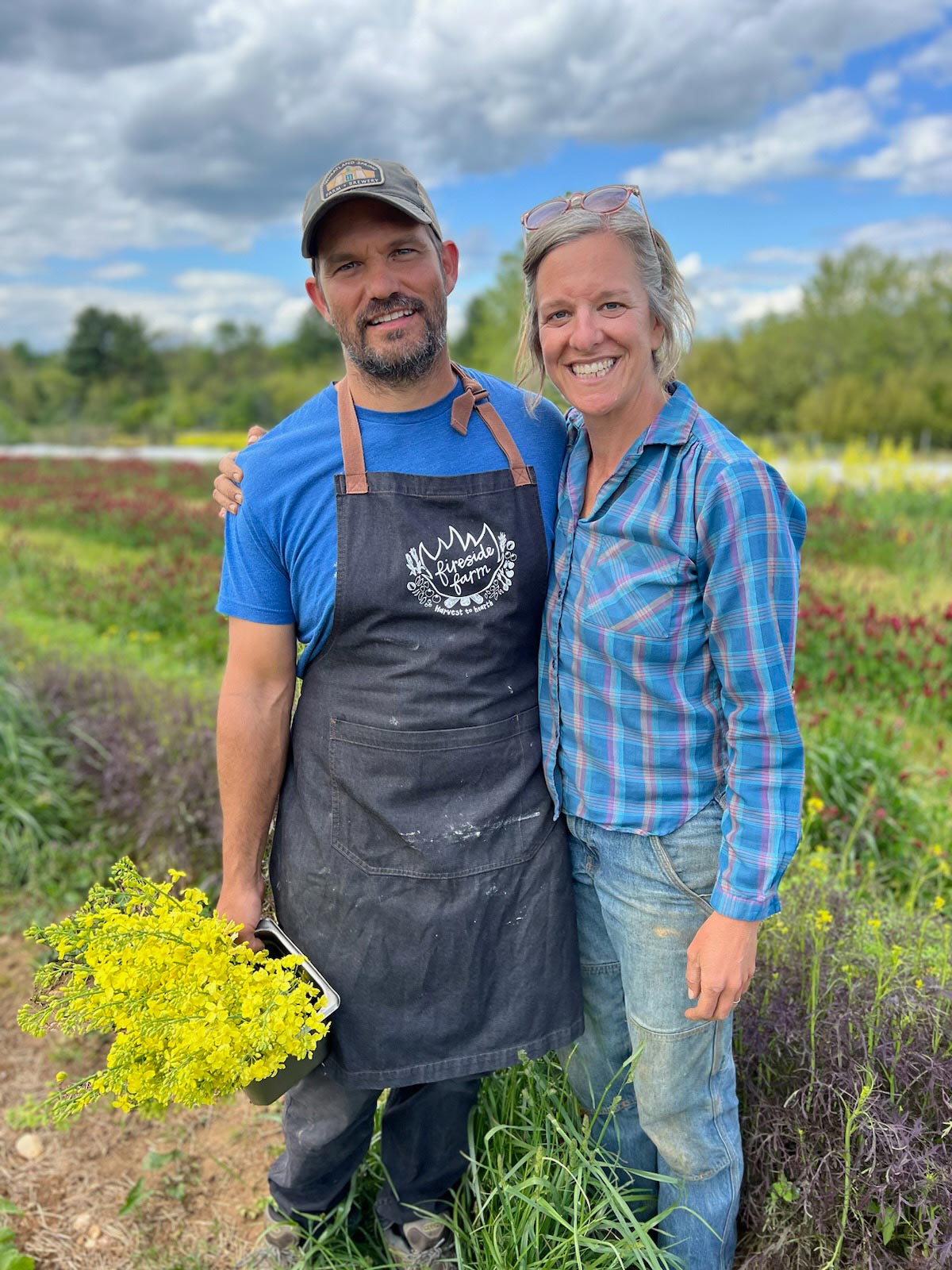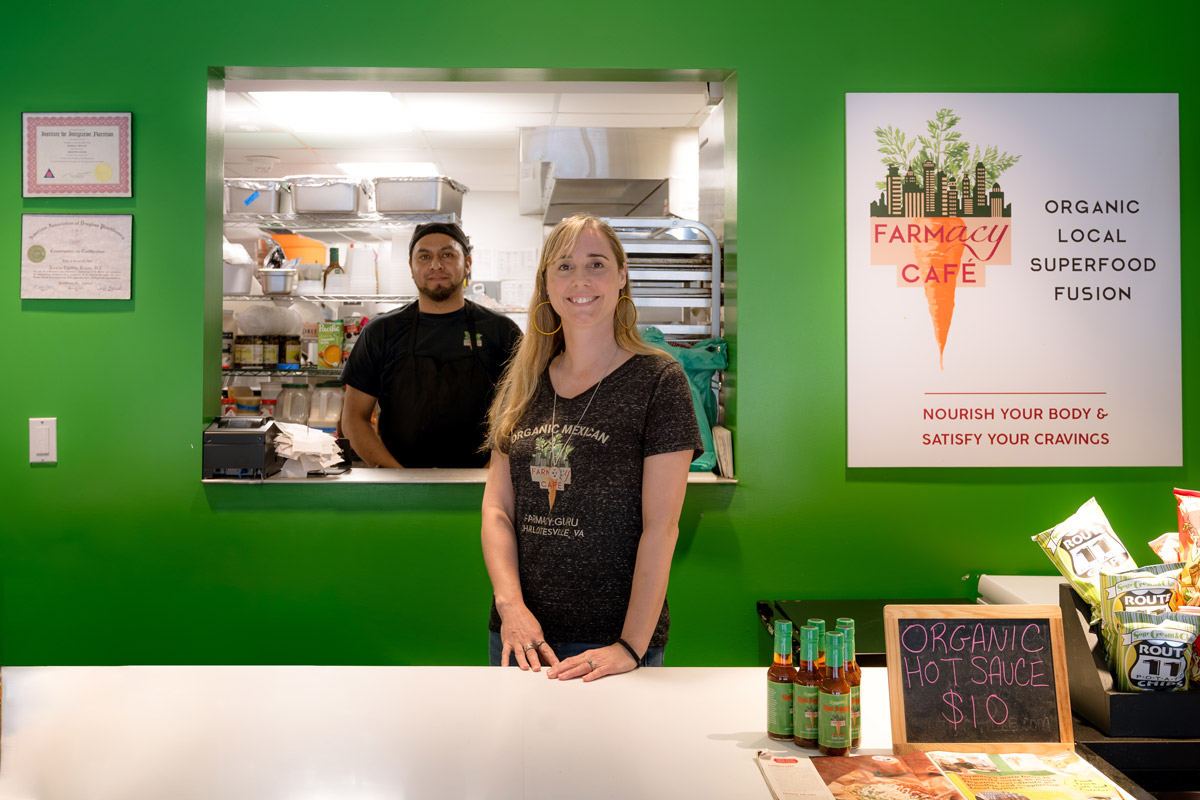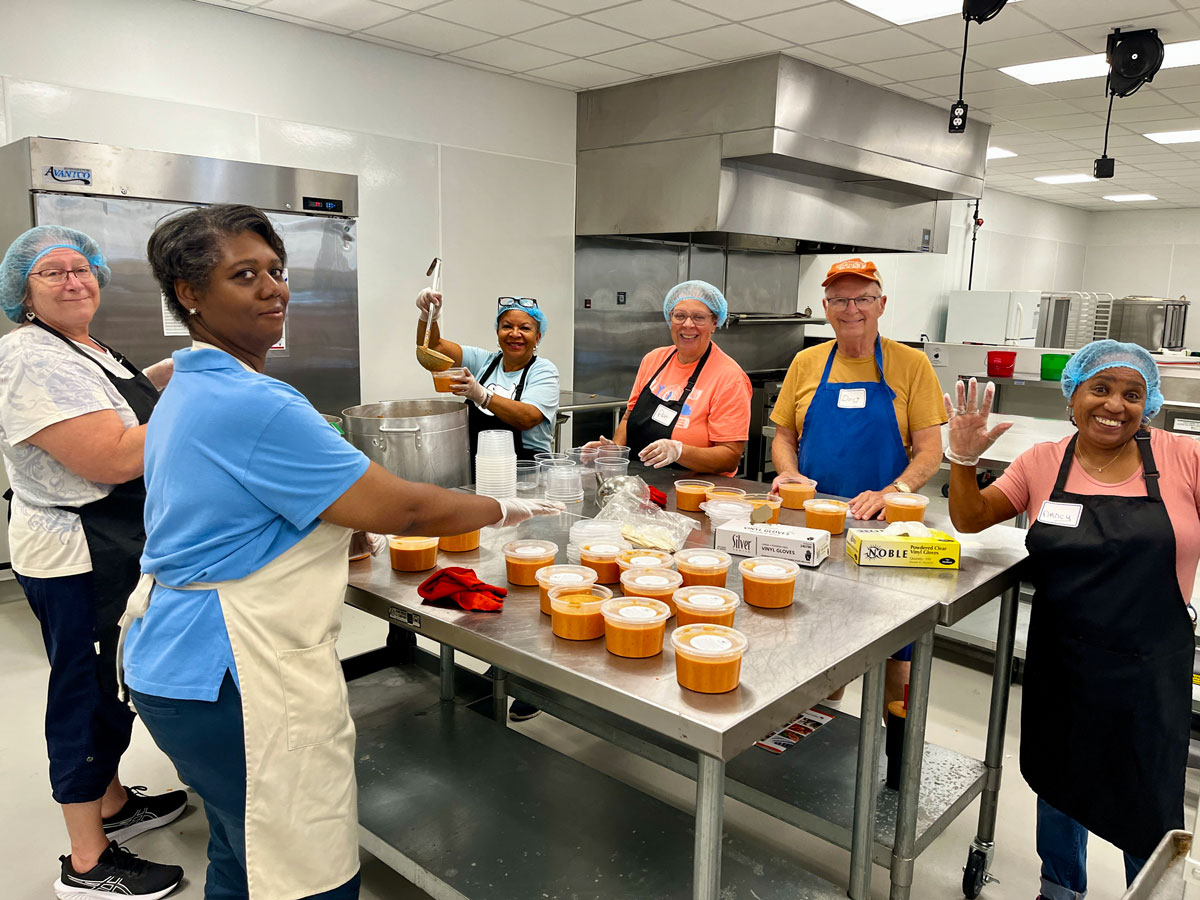
Carver Food Enterprise Center: Community Value Added
by Lea Justice, Buy Fresh Buy Local Assistant, The Piedmont Environmental Council
Follow your nose down the hallways of the Carver Center in Rapidan and you’ll come to a bright mural announcing your arrival where good food happens and dreams come true – the Carver Food Enterprise Center.
Originally started by Virginia Cooperative Extension as a response to local food insecurity, the project is now managed by the George Washington Carver Agricultural Research Center in partnership with VCE. Affectionately dubbed “Carver Kitchen,” this 6,200-square-foot commercial kitchen serves as a food business incubator, classroom and processing center for farm surplus. A Swiss Army Knife of food production, processing equipment of all shapes and sizes lines the immaculate, stainless steel work spaces waiting to transform raw ingredients into ready-to-eat goodness at a commercial scale.
Carver Kitchen is every aspiring food entrepreneur’s dream. Caterers, food trucks, sauce-makers, and bakers who have outgrown cottage food law now have an affordable way to scale up in an inspected facility. Program Director Gretchen Ledmor and Senior Extension Agent Lenah Nguyen are on hand to help dreamers vet their ideas and to translate intimidating regulations into practical how-to workshops. In the one year since Carver Kitchen started cooking, 23 businesses have joined the program, with spaces still available.
Robert Turner, of “Small Batch Big Taste,” is among the savvy entrepreneurs who have availed themselves of this invaluable resource. When his hot sauce passion outgrew his home kitchen, he came to Gretchen to find out what he needed to move into retail. One year of paperwork and food prep classes later, Robert received his FDA approval this January and has just started using Carver Kitchen for his hot sauce production. This season’s batch will be coming to a market near you thanks to Robert’s perseverance and the center’s technical resources and support. To his fellow foodies, Robert encourages, “Follow your dreams, don’t give up. It’s possible; it just takes time.” He credits Carver Kitchen for the help it took to make his dreams a reality, “I don’t think I could have done it without them, especially as quickly.”
Carver Kitchen is also putting its many tools to use capturing the regional harvests that might otherwise be wasted. Soon, farmers will be able to take their bumper crops and uglies to Carver Kitchen. They can either co-pack: pay the kitchen to process and package goods with their own recipe and label, or white label: sell their surplus so Carver Kitchen can aggregate into value-added foods sold to local institutions. Farmers can also put their yields to good use by donating them to be processed into meals for community pantries. Donors will receive a tax-deductible receipt for the market value of the product(s) and will be highlighted in all marketing around the dish.
For more information on the many opportunities to grow your food business, visit www.gwcfec.org. If your harvests and dreams have outgrown your own kitchen, let them add value to our local food community at Carver Food Enterprise Center.
Photo credit: Gretchen Ledmor
